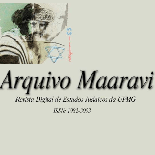
Arquivo Maaravi-Revista Digital de Estudos Judaicos da UFMG
Scope & Guideline
Fostering Dialogue in Jewish Scholarship
Introduction
Aims and Scopes
- Jewish Cultural Studies:
The journal emphasizes the exploration of Jewish culture through various lenses, including literature, art, and culinary traditions, reflecting on how these elements shape Jewish identity. - Historical Perspectives:
It provides historical analysis on Jewish history, including the Holocaust, migration experiences, and the evolution of Jewish communities in different geographical contexts. - Interdisciplinary Approaches:
The journal encourages interdisciplinary methodologies, integrating insights from sociology, anthropology, literature, and religious studies to enrich the understanding of Jewish experiences. - Identity and Memory:
A core focus is on the themes of identity and memory, particularly in relation to trauma, diaspora, and the lived experiences of Jewish individuals and communities. - Literary Analysis:
The journal features literary critiques and analyses of both classical and contemporary Jewish literature, examining the narratives that contribute to Jewish thought and identity.
Trending and Emerging
- Holocaust Studies and Survivor Narratives:
There is a rising interest in exploring Holocaust survivor narratives and their implications for contemporary Jewish identity, reflecting a deeper engagement with memory and trauma. - Environmental and Ethical Reflections:
Recent publications have begun to address the intersection of Judaism with environmental issues, such as sustainability and ecological ethics, highlighting a modern relevance to traditional Jewish teachings. - Food Studies in Jewish Contexts:
The exploration of food as a cultural and identity marker within Jewish communities is trending, with increasing analyses of culinary traditions and their significance in Jewish life. - Feminist Perspectives in Jewish Studies:
Emerging feminist analyses of historical and contemporary Jewish figures and texts are gaining attention, reflecting a broader trend towards inclusivity and diverse narratives within Jewish scholarship. - Intersections of Jewish Identity and Diaspora Experiences:
There is a growing focus on the complexities of Jewish identity as it intersects with diaspora experiences, particularly in Latin America, showcasing diverse cultural expressions and adaptations.
Declining or Waning
- Traditional Religious Practices:
There has been a noticeable reduction in papers focusing on traditional religious practices and rituals, suggesting a shift towards more contemporary and secular analyses in Jewish studies. - Historical Narratives of Early Jewish History:
Themes centered on early Jewish history, particularly those that do not engage with modern implications, are less frequently addressed, indicating a possible waning interest in ancient narratives. - Theoretical Discussions on Jewish Philosophy:
Discussions rooted in classical Jewish philosophy have become less prominent, as the journal seems to be gravitating towards more practical and contemporary issues surrounding Jewish identity. - Jewish Mysticism:
Topics related to Jewish mysticism and Kabbalistic studies have seen a decline, suggesting that current scholarship may be focusing more on sociocultural aspects rather than esoteric traditions.
Similar Journals
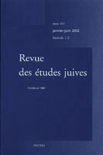
REVUE DES ETUDES JUIVES
Advancing Scholarship in Jewish Studies Since 1967REVUE DES ETUDES JUIVES, published by PEETERS, stands as a vital platform for scholarly discourse in the realms of Cultural Studies, History, Literature and Literary Theory, and Religious Studies. Based in Belgium, this journal, bearing the ISSN 0484-8616 and E-ISSN 1783-175X, has been faithfully chronicling research since its inception, with comprehensive coverage spanning from 1967, 1969, and several periods thereafter until 2023. Although categorized in Q4 quartiles across its fields—showing a diverse yet niche presence—it provides an invaluable space for emerging voices and established scholars to explore Jewish studies in a multidisciplinary context. Despite its compact impact factor and Scopus rankings reflecting its emerging status in the academic community, the journal is committed to fostering dialogue on the cultural and historical aspects of Jewish identity, offering a unique opportunity for researchers, professionals, and students to engage with contemporary and historical issues of Jewish significance. As a non-open access resource, it appeals to those seeking rigorous academic inquiry supported by Peeters' esteemed publishing acumen.

JOURNAL OF JEWISH THOUGHT & PHILOSOPHY
Illuminating the Intersections of Literature, Philosophy, and FaithThe JOURNAL OF JEWISH THOUGHT & PHILOSOPHY, published by BRILL, stands as a significant academic resource since its inception in 1993. With the ISSN 1053-699X, this interdisciplinary journal uniquely bridges various fields including Literature and Literary Theory, Philosophy, and Religious Studies, providing a platform for rigorous exploration of Jewish intellectual traditions and their broader cultural implications. Holding esteemed rankings across multiple categories, including Q1 in Literature and Literary Theory and Q2 in Philosophy, the journal appeals to researchers and scholars worldwide. The journal is not open access but is available through numerous academic libraries, making it accessible to those dedicated to advancing knowledge in Jewish thought. By fostering critical discourse and innovative scholarship, it remains an essential resource for understanding complex intersections of faith, ethics, and society from a Jewish perspective.
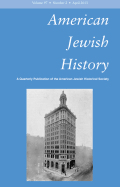
AMERICAN JEWISH HISTORY
Uncovering Narratives, Shaping IdentitiesAMERICAN JEWISH HISTORY is a premier academic journal published by Johns Hopkins University Press, dedicated to the exploration and analysis of the Jewish experience in the American context. With ISSN 0164-0178 and E-ISSN 1086-3141, this journal serves as a vital resource for scholars and students in the fields of cultural studies, history, and religious studies, as evidenced by its placement in the Q3 quartile across these disciplines in 2023. Reaching a broad audience interested in the historical, social, and cultural dimensions of the American Jewish narrative, the journal has converged in various years, ensuring a robust collection of multidisciplinary research and discussions. Although it operates under a traditional subscription model, the journal remains an essential platform for critical analysis, fostering deeper understanding of Jewish identity and history. With Scopus rankings placing it at the 60th percentile in History and 62nd percentile in Religious Studies, AMERICAN JEWISH HISTORY stands as a respected publication that significantly contributes to the discourse surrounding Jewish history and culture in the United States.
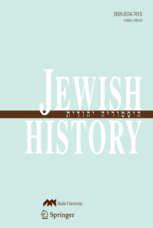
Jewish History
Illuminating the Past: Jewish History RevisitedJewish History is a significant academic journal published by Springer, focusing on the multifaceted historical narratives of Jewish communities worldwide. With roots tracing back to 1986, this esteemed journal offers an intellectual platform where researchers and scholars can engage critically with the vast and rich tapestry of Jewish heritage, culture, and experiences. Although it operates under a traditional subscription model, the journal has gained a notable standing in recent years, achieving a Q4 ranking in Cultural Studies and a Q3 ranking in History for 2023, reflecting its robust scholarly contributions. The journal is indexed in Scopus, with a rank of #808 in Arts and Humanities History and #754 in Social Sciences Cultural Studies, placing it within the competitive landscape of academic publishing. Its commitment to advancing the field of Jewish studies makes it an essential resource for researchers, professionals, and students alike, who seek to deepen their understanding of Jewish history from historical, cultural, and social perspectives.

Zutot
Innovating Scholarly Perspectives in Cultural StudiesZutot is a distinguished academic journal published by BRILL, focusing on the multifaceted realms of Arts and Humanities, Cultural Studies, and Religious Studies. With ISSN 1571-7283 and E-ISSN 1875-0214, Zutot presents an invaluable platform for scholars seeking to explore innovative ideas and interdisciplinary approaches within these fields. Recognized within the Q4 category for its contributions to contemporary discourse, the journal ranks at the 44th percentile in Religious Studies and the 39th percentile in General Arts and Humanities, underscoring its relevance and the quality of research it publishes. Since its inception, Zutot has continued to facilitate critical dialogue and scholarship, thus acting as a crucial resource for researchers, professionals, and students alike. Its converged publication years from 2001 to 2004 and 2008 to 2024 further demonstrate its ongoing commitment to supporting rigorous academic inquiry.

Quest-Issues in Contemporary Jewish History
Connecting Scholars to the Heart of Jewish HistoryQuest - Issues in Contemporary Jewish History is a pivotal open-access journal published by the Fondazione Centro Documentazione Ebraica Contemporanea in Italy. Since its inception in 2010, this journal has been dedicated to the scholarly exploration of the multifaceted dimensions of contemporary Jewish history, making significant contributions to the fields of history and cultural studies. With an ISSN of 2037-741X, it serves as a vital platform for researchers, professionals, and students alike, providing access to an array of insightful articles and research findings. As of 2023, it holds a respectable Q3 ranking in the History category within Scopus, indicating its growing influence in academia, alongside a rank of #899 out of 1760 in Arts and Humanities – History. This makes it an essential resource for those looking to deepen their understanding of Jewish history in a contemporary context. The journal, with its rich scholarly outputs converging from 2017 to 2023, is based in Milan and strives to foster high-quality research in Jewish studies.
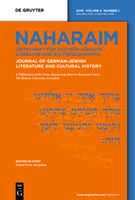
Naharaim
Exploring the Depths of Near Eastern ScholarshipNaharaim is a distinguished academic journal dedicated to fostering interdisciplinary scholarship in the field of Near Eastern studies. Published by Walter de Gruyter GmbH, this journal aims to provide a platform for innovative research that explores the rich historical, cultural, and social dynamics of the region. With an ISSN of 1862-9148 and an E-ISSN of 1862-9156, Naharaim adheres to high academic standards, although it does not currently offer open access options. The journal aspires to engage a global audience of researchers, professionals, and students eager to contribute to and gain insights from the evolving discourse surrounding Near Eastern cultures and histories. Through rigorous peer-reviewed articles, Naharaim plays a vital role in advancing knowledge and understanding in a field of study that is increasingly relevant in today’s interconnected world.
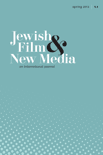
Jewish Film & New Media-An International Journal
Advancing Scholarship at the Crossroads of Film Studies and Jewish StudiesJewish Film & New Media: An International Journal, published by Wayne State University Press, serves as a crucial platform for scholars and practitioners within the realms of Film Studies, Jewish Studies, and Media Studies. Since its inception, the journal has explored the intersection between Jewish culture and cinematic representation while also addressing contemporary media narratives. With an ISSN of 2169-0324 and E-ISSN 2169-0332, it is indexed in major databases, showcasing solid rankings in various disciplines, including a commendable Q2 rank in Visual Arts and Performing Arts. Despite its current Q4 categorizations in Anthropology and Communication, the journal is noted for its engaging contributions that sow rich discussions about Jewish identity, filmic expression, and media representation. Researchers and students alike benefit from the journal’s wealth of interdisciplinary scholarship, which spans converged years from 2013 to 2017 and 2019 to 2022, ensuring a robust timeline of critical inquiry. As an essential resource for understanding the nuances of Jewish film and new media, this journal occupies a unique niche, inviting contributions that push the boundaries of current academic dialogue.

European Journal of Jewish Studies
Navigating the Complexities of Jewish Culture through ResearchEuropean Journal of Jewish Studies is a distinguished academic publication that offers a comprehensive platform for scholarly inquiry into Jewish studies, addressing critical intersections with cultural studies, history, literature, and religious studies. Published by BRILL, a leading academic publisher based in the Netherlands, this journal boasts a robust reputation supported by its impressive rankings and quartile classifications—Q3 in Cultural Studies, Q3 in History, Q2 in Literature and Literary Theory, and Q3 in Religious Studies as of 2023. With its convergence years spanning from 2007 to 2024, the journal serves as a vital repository of research that navigates the complexities of Jewish identity and culture through interdisciplinary lenses. Although it does not operate under an open access model, the journal's rigorous peer-review process ensures the publication of high-quality research essential for students, professionals, and academics alike. Engaging with this journal opens up pathways for critical dialogue and innovative contributions to the field, making it an essential resource for those invested in the rich tapestry of Jewish studies.
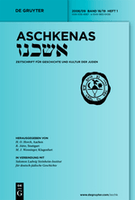
Aschkenas-Zeitschrift fuer Geschichte und Kultur der Juden
Engaging with the Tapestry of Jewish HistoryAschkenas-Zeitschrift fuer Geschichte und Kultur der Juden, published by WALTER DE GRUYTER GMBH, is a distinguished academic journal that delves into the rich history and cultural heritage of Jewish communities. Based in Germany, this journal is indexed under the ISSN 1016-4987 and E-ISSN 1865-9438, making its contributions accessible to an international audience. Although it currently operates without open access options, the journal serves as an important platform for researchers in the fields of Arts and Humanities, History, Literature and Literary Theory, and Religious Studies, as evidenced by its publication history from 1996 to 2023. While ranked in the fourth quartile across various categories on Scopus, the journal provides critical insights and interdisciplinary approaches that enrich the understanding of Jewish cultural narratives. Researchers, professionals, and students alike will find valuable content that not only highlights historical perspectives but also engages with contemporary cultural discussions. This journal remains a vital resource for those seeking to deepen their knowledge and contribute to ongoing dialogues in Jewish studies.